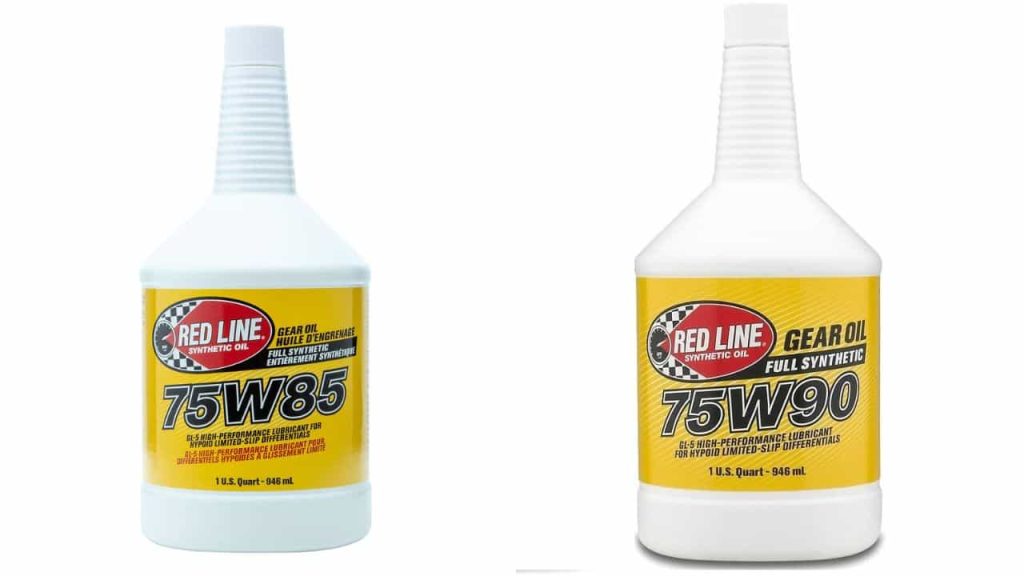Have you ever wondered about the difference between the 75w85 vs 75w90 engine oil?
Your engine requires proper lubrication, maintenance and care to perform well. This is true whether you have a passenger, commercial, or racing car. This is why proper and regular maintenance are both important to allow your engine to run smoothly.
So today, we will uncover the difference between the 75w85 and the 75w90 oils. These are two of the most common options, so let us understand their unique features, benefits and limitations. Let’s jump right into it.

Contents
Understanding the 75w85 Vs 75w90 Engine Oil
Let us begin with the 75w85. Basically, this engine oil has ingredients designed for various purposes and types of vehicle. The primary formula includes organic compounds, which are polyol esters-based. It also comes with a moderate level of viscosity and not the mucilaginous property as with other products.
Because of the viscosity level of this product, the 75w85 is capable of penetrating easily to the internal components of your engine. Therefore, it helps to minimize friction and lubricate the components well and effectively.
Moreover, when you use the recommended thickness of the product, it is not likely to coagulate or burn. This is particularly useful when you drive your vehicle in extreme weather conditions. If you use your car in humid or hot weather, as well as in cooler and frigid regions, the oil is capable of offering exceptional protection and lubrication.
Furthermore, there are additives to this product such as Chlorine and Bo, which help in keeping the performance of your vehicle stable. These compounds are also excellent in lubricating delicate parts. And most importantly, the oil creates rust-resistance films and an antifoam that add protection to your vehicle.
As for the 75w90, this is also an engine oil but with a higher quality. It comes with a high concentration of materials that offer an impeccable viscosity to the material. With that being said, you will not have to deal with friction effects as your engine runs. The lubricant also comes with a sheer resistance unlike other products.
There are special additives to the 75w90. These include chlorine, Bo, and phosphorus, to name a few. What these do is to shape your oil and keep it supported in various applications. With these components, the oil can lubricate key components. Hence, these parts can function smoothly while preventing foaming and rust stains.
When you use the oil, the engine’s starting time will be reduced. Additionally, the car will not be able to start immediately after you get gas.
Additional Facts About The 75w85 Vs 75w90
There are a few similarities between these two engine oils. For example, they are both capable of resisting cooler environments. When it is very cold outside, or there is snowfall happening, both oils are perfect to use. Other lubricants, on the other hand, cannot perform as well. They may even freeze when you use them in the cold weather.
As a result, these are great products to choose from when you are living in a place with a very cold climate. You do not run the risk of having issues with your car. But at the same time, it is practical to read your manual to make sure it is compatible with these oils.
Now, you can count on these products as a lubricant. But did you know there are other benefits to this engine oil? You can also count on these to boost stability and performance.
When you have anti-rust properties to these products, the pipes, as well as fluid transport components, are prevented from premature degradation. You can even reduce the likelihood of getting air bubbles in your vehicle.
We like the fact that these products offer excellent compatibility with most lubricants. These include organic substances, which is why there is no problem with mixing them up with other materials to obtain the right mixture you need.
While there may be plenty of similarities, there are also some differences to consider. This includes how distinct they are from one another. The most common difference is the viscosity and density. But as for the composition, there are similarities. However, the 75w90 has a few additives included and the base oil changes.
Moreover, this difference engages in altering the oil’s changes. This is why the viscosity of your 75w90 goes higher compared with your 75w85.
When compared side by side, both products can equally resist cold environments. You can certainly use your 75w98 even in hot areas. But you need to evaluate it well before using it.
Both products are capable of supporting the engine’s internal components in terms of maintenance and operation. You can also substitute the 75w90 from 75w75. Because of the similar structure, function and a very minimal performance difference, there should be no problem at all.
Read More: Gumout Vs Seafoam: Important Facts You Should Know
Final Thoughts
If you are wondering about the 75w85 vs 75w 90, there are a few differences and limitations between the two. This is why we highly recommend that you check the recommendations and ingredients from your manufacturing the products.
With that being said, you now have a key understanding of the 75w85 and the 75w90. These are definitely good oils for your engine. However, it helps to determine which one is better for your car to make sure that you do the best investment of your time and money.
So, now that you know more about these two products, you can decide better on what to use for your particular engine’s condition. Just keep in mind that these are not two alike products and one is better off for a specific purpose for your engine performance and lifespan.